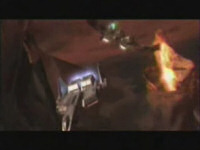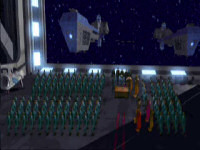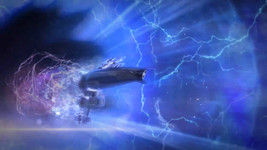AD
Finder of things, Doer of stuff
Gameological has posted an interesting article comparing the overall impact of the ending of Mass Effect 3 to the endings of Wing Commander 3. The article assumes the reader is familiar with the controversial endings to Mass Effect 3 and doesn't delve into those endings much in favor of dissecting the various end-games from 'The Heart of the Tiger.' It is also unclear whether the writer took the time to try out the extended conclusions from Bioware's recent DLC. Still, I guess there are worse reasons to use as excuses to talk about Wing Commander.
The writer also has an odd sense of the "good" ending of the game, going as far as calling its implications shameful. As well, he seems to miss the parallels between the T-bomb and the nuclear blasts unleashed on Hiroshima and Nagasaki, which, given the moral nature of the author's argument, would seem to be a glaring omission.
Do you agree with the author's assesment of the Wing Commander 3 endings? Can you draw similar parallels to the Mass Effect endings? For a refresher, don't forget to watch the Wing Commander 3 losing endgame videos in our Holovids section here and the wining ending here. Let us know what you think in the comments.
--
Original update published on September 5, 2012
The writer also has an odd sense of the "good" ending of the game, going as far as calling its implications shameful. As well, he seems to miss the parallels between the T-bomb and the nuclear blasts unleashed on Hiroshima and Nagasaki, which, given the moral nature of the author's argument, would seem to be a glaring omission.
Do you agree with the author's assesment of the Wing Commander 3 endings? Can you draw similar parallels to the Mass Effect endings? For a refresher, don't forget to watch the Wing Commander 3 losing endgame videos in our Holovids section here and the wining ending here. Let us know what you think in the comments.
Years before Commander Shepard raged against the hostile machines, there was another human soldier fighting insurmountable odds?and making hard choices?to save humanity?s freeze-dried bacon. Wing Commander?s Colonel Christopher Blair fought the ferocious feline Kilrathi in a take-no-prisoners space-fight to the death...
Neither postscript is perfect, but the makers of Wing Commander resisted the urge to press the history eraser button, and made both endings matter in a way that Shepard?s never will.
--
Original update published on September 5, 2012
Last edited by a moderator:





 been YEARS... i miss the old ranks and insignia format... heh) or even researched much into the storyline.
been YEARS... i miss the old ranks and insignia format... heh) or even researched much into the storyline.